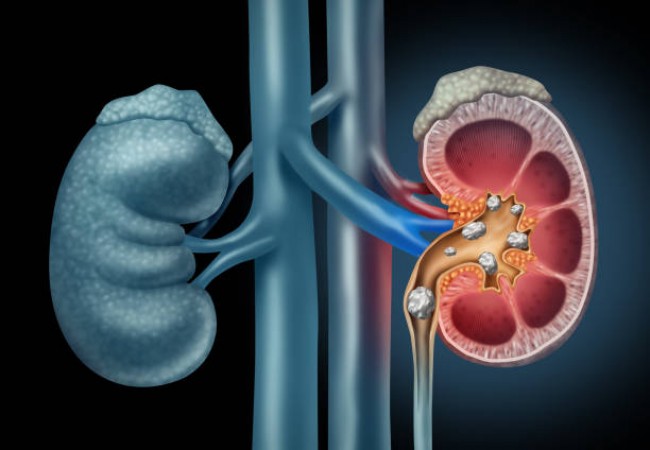
Have you ever heard of kidney stones? Those painful mineral formations that can cause excruciating pain and discomfort. But did you know that stones can form in other parts of your body too? Yes, you read that right. Various body parts are susceptible to the formation of stones, and it's essential to take preventive measures to avoid these uncomfortable situations. In this article, we'll explore six different parts of the body where stones can form and discuss how you can proactively prevent their formation. Kidney stones are a well-known health issue, but they are not the only type of stones that can wreak havoc on your well-being. While kidney stones receive significant attention due to the extreme pain they cause, it's crucial to realize that stones can form in several other body parts too. This article sheds light on these lesser-discussed types of stones and offers insights into effective preventive strategies.
Kidney stones are hard deposits made of minerals and salts that form inside the kidneys. They can vary in size and shape and may cause intense pain, nausea, and discomfort when they block the urinary tract. Kidney stones often develop due to dehydration, a diet high in certain minerals, or underlying medical conditions.
The gallbladder, responsible for storing bile produced by the liver, can develop small, hard deposits known as gallstones. These stones can block the flow of bile, causing pain and potential complications if left untreated.
Stones can also form in the bladder, usually when urine becomes concentrated. Bladder stones can lead to urinary difficulties and discomfort in the lower abdomen.
Calcium deposits can accumulate in the salivary glands, forming stones that block the ducts and lead to swelling and pain, especially while eating.
Liver stones, often made of cholesterol, can form in the bile ducts. They might not always cause symptoms but can result in inflammation or other complications.
Pancreatic stones are rare but can occur due to the accumulation of protein and calcium. These stones can hinder proper pancreatic function and lead to pancreatitis.
Prostate stones, though benign, can cause discomfort and urinary issues. They are believed to develop due to chronic inflammation within the prostate.
The formation of stones in these body parts can be attributed to various factors, including genetics, diet, dehydration, and metabolic disorders. Understanding these causes is essential for effective prevention.
While the types of stones may vary, one thing remains constant: the importance of taking immediate action. Ignoring symptoms or delaying medical attention can exacerbate the condition and lead to more severe complications.
Preventing stone formation involves making conscious lifestyle choices. Here are some measures you can take:
Adequate hydration is crucial for preventing stone formation in most body parts. Water helps dilute minerals and salts, reducing the risk of crystal formation.
A diet rich in fruits, vegetables, and whole grains while limiting processed foods can go a long way in preventing stone formation.
Excessive salt consumption can contribute to stone formation. Be mindful of your salt intake and opt for healthier seasoning alternatives.
Regular physical activity can help maintain overall health and prevent conditions that contribute to stone formation.
If you have conditions like diabetes or urinary tract infections, proper management is crucial to minimize the risk of stone formation.
Routine health check-ups allow your healthcare provider to detect early signs of stone formation and recommend appropriate measures.
If you experience persistent pain, changes in urinary patterns, or other unusual symptoms, it's vital to seek medical assistance promptly. Timely intervention can prevent complications. Stones aren't limited to just the kidneys. Various body parts can fall victim to these mineral formations, causing discomfort and complications. By understanding the risk factors and adopting preventive strategies, you can significantly reduce the likelihood of stone formation and maintain your overall well-being.
Dive into the Health Benefits of Watercress
Avoid These 5 Foods Before Bed to Prevent Acidity
Natural Remedy: Drinking Clove-Infused Milk for Men's Health